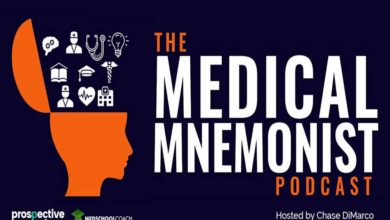Dr. Michael Cosimini discusses gamification and games for clinical education. Dr. Cosimini is an Assistant Professor of Pediatrics at the Keck School of Medicine at USC, and the author of Empiric, a card game for learning guidelines-based antibiotic selection.
- [02:08] Challenges of Creating Games for a Clinical Setting
- [02:56] Gamification Versus Serious Games
- [07:22] How to Balance Between Entertainment and Education
- [08:09] Tabletop Games Versus Video Games
- [12:23] How Medical Students Can Apply Games to Their Learning
- [13:49] How Empiric Works
- [20:21] How to Find Out More About Michael & Empiric
Gamification Versus Serious Games
Many medical instructors already gamify their educational content, for example, by transforming a PowerPoint slide into a game of Jeopardy, giving out stickers for accomplishments, and having a leaderboard in class. An example of gamification in the literature is when surgical residents performing laparoscopic procedures were split into competing groups. The randomly selected students who trained in this gamified setting trained longer and performed better.
Dr. Cosimini does support gamification, but he more strongly promotes “serious games” which go beyond gamifying existing educational content, to creating a game for the purpose of education, rather than pure entertainment. For example, the game GridlockED, which resembles Clue, trains players to handle emergency room throughput. Michael’s card game, Empiric for learning antibiotic selection is also a serious game.
How to Balance Entertainment and Education in Games
To help find the appropriate balance between entertainment and education, Dr. Cosimini emphasizes the importance of testing the outcome of a game, to see what students have actually learnt. As a rule of thumb, be respectful of the player’s time. Do not have a game that is long, unless there is evidence that shows that this contributes to the learning process.
Tabletop Games Versus Video Games
Dr. Cosimini promotes tabletop games over digital or video games for medical education. He cites a study by Mary Flanagan of Tiltfactor, a game design company. The study compared the iPad and tabletop version of Pox: Save the People, a game about disease spread. With the tabletop version, people tended to interact and work together more, which is important for the social aspect of learning.
How Medical Students Can Apply Games to Their Education
Creating their own card games might be too involved, and too time-consuming for a medical student. Students can instead use off-the-shelf card games from resources such as East Midlands Emergency Medicine Educational Media, #EM3, which provides games for learning about pediatric EKGs, pediatric dermatology, and pediatric and adult orthopedics. For instructors, Michael recommends MedEd Portal. He of course also recommends his own game Empiric, for learning about antibiotic selection, and his upcoming game about emergency medicine. These games are more helpful for clinical education i.e. for medical students on their clinical rotations, or for residents, and less helpful for first and second year medical students.
How Empiric Works
Empiric is based on the American Academy of Pediatrics (AAP) Red Book, 2018-2021. Dr. Cosimini includes visual cues — such as color coding — for facts such as the mechanism of delivery and the spectrum of activity, to enable students to memorize facts more quickly. It can be difficult to keep up with the changing facts around antibiotic resistance, and other antibiotic research. Currently, Dr. Cosimini does this by updating the printable card decks online, after the research is updated.
Check out Empiric’s Twitter, Instagram, Facebook, and website. The website includes a list of medical and non-medical card games.
Sign up for a Free Coaching session with Chase DiMarco, sponsored by Prospective Doctor! You can also join the Med Mnemonist Mastermind FB Group today and learn more about study methods, memory techniques, and MORE! Do check out Read This Before Medical School.
Like our FreeMedEd Facebook page and find our Medical Micro course, blog posts, and podcasts at FreeMedEd.org! Feel free to email any questions or comments.
